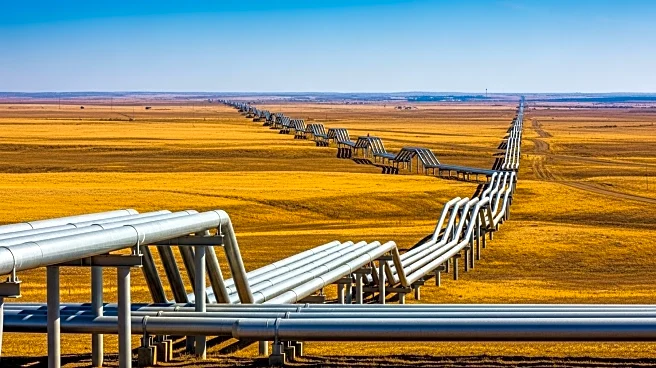What's Happening?
Oil production from the Bakken shale field is experiencing a slowdown due to declining flows on the Dakota Access Pipeline. The pipeline, which transports oil from North Dakota to Illinois, saw a decrease in its daily oil transport from 566,000 barrels in July to 542,000 barrels in August. Analysts had anticipated increased utilization of the pipeline, but weaker oil prices and rising competition from Canadian oil have led to reduced drilling activity in the region. The rig count in the Bakken has dropped from 35 in January to 30 by mid-year.
Why It's Important?
The slowdown in Bakken oil production could have significant implications for the U.S. energy sector, affecting supply dynamics and potentially influencing oil prices. The reduced pipeline utilization reflects broader challenges in the industry, including competition from Canadian oil and fluctuating market conditions. Companies involved in the Bakken region may face economic pressures, and the situation could impact employment and investment in the area. The development underscores the interconnectedness of global oil markets and the influence of international competition on U.S. production.
What's Next?
As Canadian crude production rebounds and U.S. refiners complete maintenance, the competition for pipeline capacity may intensify, further impacting Bakken volumes. Stakeholders, including pipeline operators and energy companies, may need to reassess strategies to optimize production and transportation. The situation could prompt discussions on infrastructure investments and regulatory measures to support the U.S. oil industry amidst changing market dynamics.









